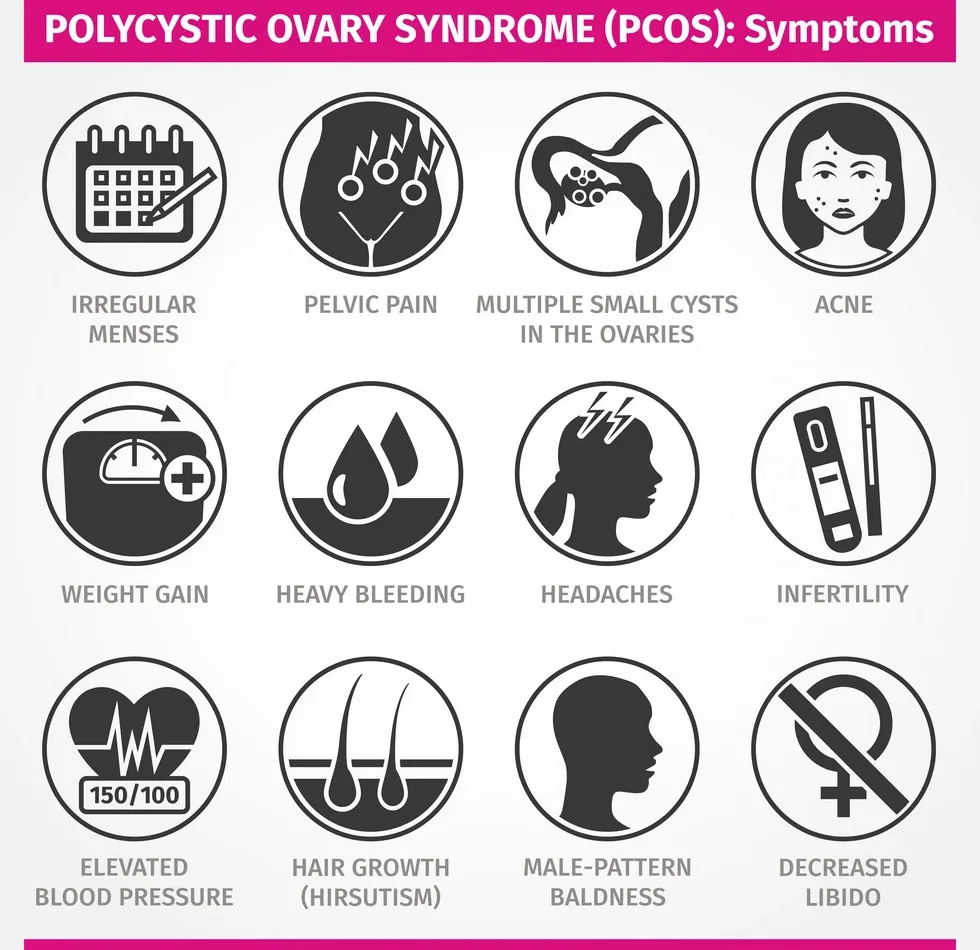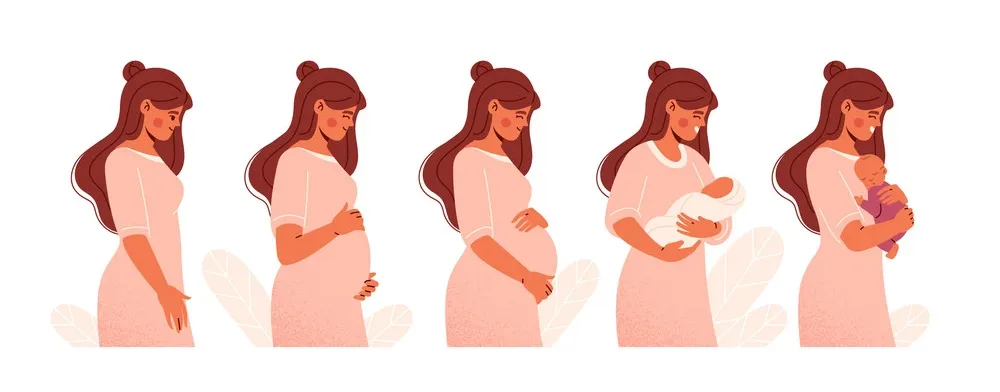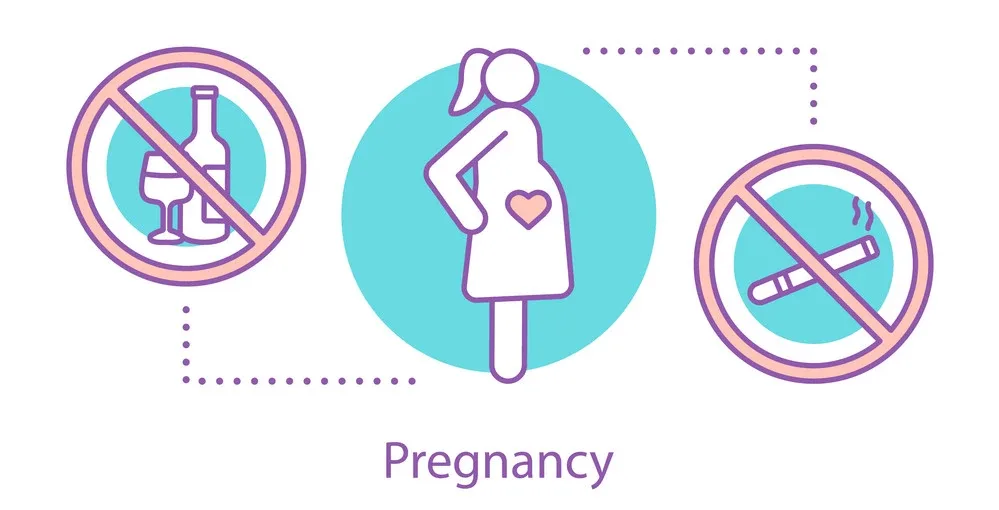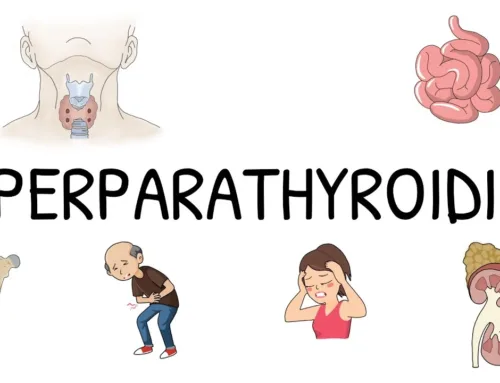PCOS is a hormonal disorder that affects ovulation, which makes it very difficult for the body to release an egg for fertilization. PCOS is a condition that affects 12% of all women in their reproductive years. It is the most common cause of infertility and can take years to treat.
What are the first signs of PCOS?

In addition to irregular periods, other signs of PCOS include acne, increased hair growth on the face and body (called hirsutism), weight gain, and infertility. In some women with PCOS, the menstrual cycle may be absent altogether; if it does occur, it can be very heavy, with prolonged bleeding lasting up to 7 days or longer. Some women may have a normal cycle but develop problems later in life. Pregnancy can temporarily improve fertility in some women with PCOS because high levels of certain hormones produced by the placenta may help regulate hormone levels in your body.
Can I have a normal baby with PCOS?
Pregnancy with PCOS is possible and can be healthy, but you should know that it can take longer to conceive than for women without this condition. It’s also harder to get pregnant and more likely that you will have a miscarriage or a baby born too early—that is, before 37 weeks of pregnancy.
Does PCOS cause congenital disabilities?
Although PCOS does not cause congenital disabilities, it is associated with a higher risk of congenital disabilities. Baby born to women with PCOS has a 20%–25% chance of having some congenital disability, compared to about 9% for non-affected births.
Congenital disabilities are more common in babies born to women with PCOS older than 35; the risk jumps from 8% for women under age 30 to 26% for those older than 40.
What’s the best age to get pregnant with PCOS?

You have been thinking about getting pregnant with PCOS. You may wonder about the best age to get pregnant with PCOS or if it’s even possible when you have polycystic ovary syndrome (PCOS).
Let’s start by saying that age is not a factor when trying to conceive. Women with PCOS can get pregnant at any age, and being over 35 does not mean it will be harder for them to conceive naturally.
However, this does not mean that women should rush into having children if they have PCOS because there are some things to consider before you do so:
- Make sure your doctor knows about the condition and understands what symptoms you are experiencing so they can help guide your pregnancy journey from the beginning.
- Talk about all medications, supplements, and herbal remedies before taking them during pregnancy, as some could harm both mommy and baby.* Often, women find it hard to lose weight after giving birth due to hormone changes, so ensure this doesn’t happen, as it may affect future pregnancies too!
Is PCOS a high-risk pregnancy?
Yes, PCOS is considered a high-risk pregnancy. But you might not be aware of the complications that come with it. It would be best to have regular checkups with your doctor during pregnancy. This will ensure proper care for yourself and your baby.
Does PCOS get worse after pregnancy?
Some women experience a worsening of PCOS symptoms after pregnancy, while the condition gets better for others. The reason why some women appear to have more or fewer issues with their PCOS after childbirth is unknown. It may be due to weight gain or loss and other factors such as exercise and diet before and after pregnancy. For those who do not have severe PCOS, the condition will be less of an issue post-baby.
Some studies show that you can reduce your risk of developing gestational diabetes (diabetes during pregnancy) by losing weight before attempting to conceive.
What percent of PCOS patients get pregnant?
PCOS affects up to 10% of women of reproductive age. Women with PCOS are more likely not to get pregnant than the general population.
You must understand the pros and cons before deciding if pregnancy is right for you.
How long does it take to conceive with PCOS?
How long it takes to conceive with PCOS depends on the cause of infertility and how long you try to get pregnant. For women under 35 years old, it is recommended that you try for one year before doing any tests. If you are older than 35, your doctor may recommend trying for six months before doing any tests.
Your chances of conceiving can be affected by other factors, such as if you have other health issues or whether or not your partner has a low sperm count or motility issues (the ability to move through the female reproductive system). Your doctor will help determine what course of action is best based on their findings to give you the best chance at conceiving healthily.
How can I prevent miscarriage with PCOS?

If you have PCOS, miscarriage is a risk for you. It’s a risk for about half of women with polycystic ovary syndrome.
Stop Drinking alcohol:
Don’t drink alcohol while pregnant with PCOS because it can cause fetal alcohol syndrome and other problems in your baby. It can also contribute to miscarriage and stillbirth.
Quitting smoking:
Another thing that can increase the risk of giving birth to a baby with congenital disabilities is smoking during pregnancy with PCOS. Quitting smoking before getting pregnant will reduce this risk and help keep your pregnancies healthy!

Caffeine intake:
Be careful not to drink large amounts of coffee, tea, or soda while trying to get pregnant or when you’re breastfeeding; these drinks contain caffeine that could affect your unborn child’s health in many ways, such as increasing the chance he’ll be born prematurely or having low birth weight if he does make it out alive!
Stress control:
Stressful situations are known causes of miscarriage among women without any additional conditions, such as PCOS, who do not show any physical signs yet still miscarry due solely to stress-induced stress hormones like cortisol which may decrease chances of successful fertilization due to their inflammatory properties on reproductive organs & blood vessels preventing optimal oxygen flow required for conception. If possible, avoid stressful situations like arguments or exams by taking time out of those things, so they don’t negatively impact your chances of getting pregnant successfully!
Conclusion
We hope this blog has given you a better understanding of how to get pregnant with PCOS. There are many things to consider. The most important part is that if you plan to start a family, talk to your doctor about the best way for you to do it. The next step would be finding out what type of PCOS you have and then making sure that there aren’t any other complications like endometrial hyperplasia or premature ovarian failure before the pregnancy attempt planning stage.




Leave A Comment